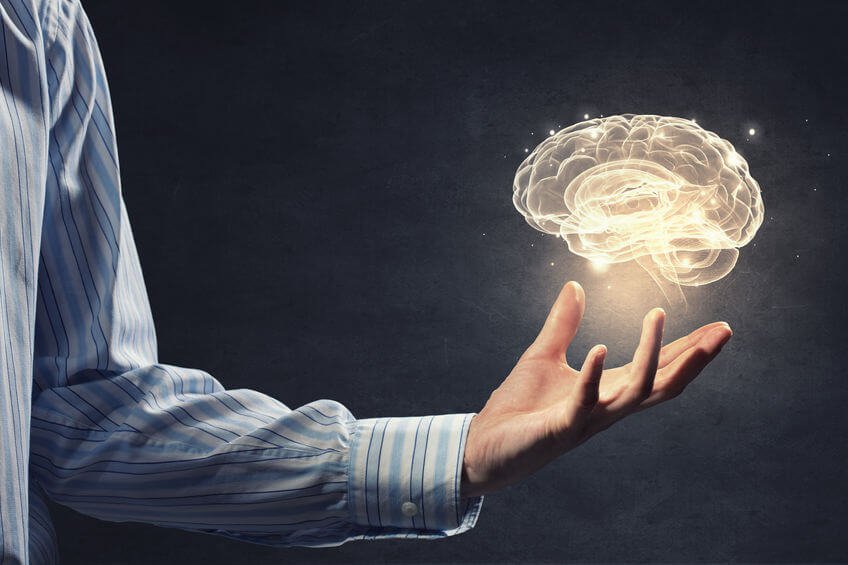3 ways to boost your brain health
Many of my patients fear developing Alzheimer’s disease, particularly if they’ve witnessed a loved one’s decline. I know this all too well.
My aunt was diagnosed with late-stage Alzheimer’s in early 2016. By summer, she barely knew who we were. By the end of that year, she had lost her memory, and her ability to speak and interact with the world.
No amount of medical training had prepared me for this.
A common concern
Brain health is something we need to address.
The statistics for Alzheimer’s disease in the U.S. are downright scary: its incidence is projected to catapult from about 5.7 million people in 2018 to 14 million people in 2020.
What’s behind this devastating disease? The causes of Alzheimer’s are often multifactorial and related to what we eat, our activity levels, the quality of our sleep and how well we manage stress.
The good news is we can do several things to protect our memory right now. This is true even for those who are at risk of developing Alzheimer’s disease. I recommend starting sooner rather than later.
How to promote brain health
It all starts with having fun! Because whatever is fun, we’re more likely to do.
1. Play games (they’re not just for kids)
There are several online brain-training programs developed by scientists to challenge the brain in fun ways, such as Lumosity®, BrainHQ®, Happy Neuron® and My Brain Trainer®. These games can provide meaningful results.
For example, one study found that healthy, older adults randomized to a speed training intervention (for quickly processing visual information) in such a program had a 29 percent lower risk of dementia after 10 years compared to the control group.
This impressive result occurred with minimal work: participants practiced for 10 sessions over six weeks, and then had four booster sessions at 11 months and another four sessions at 35 months.
While brain training programs are designed specifically to improve mental performance, any game or puzzle involving strategic thinking can stimulate the brain:
- Solo options include crossword puzzles, Sudoku® or the math equivalent, KenKen® puzzles.
- Board games or card games (Blokus®, chess, bridge and many others) stimulate the brain and add the benefit of social interaction. Loneliness and isolation contribute to dementia; connecting to others through fun activities is a healthy way to combat this.
2. Dance the night (or morning or afternoon) away
Regular physical activity will keep you mentally sharp by increasing blood flow and oxygen to the brain.
What’s the best form of exercise? The one you will actually do!
Enjoy dancing? Any style of dance — ballroom, square dance, line dance, 5Rhythms®, contra, Zumba® — combines the benefits of physical activity and social interaction.
In a study of memory-impaired older adults, those randomized to one-hour ballroom dance lessons twice a week for 10 months improved in multiple areas of brain function, as well as mood and behavior.
Dancing will get your heart rate up and your blood flowing, and can help strengthen neural connections between brain cells.
It will most likely put a smile on your face, too. If you’re single and want to take lessons, most classes provide partners.
3. Just breathe
As critical as it is to move your body, it is equally important to sit quietly and just breathe. In our goal-oriented, multitasking society, this may seem like a waste of time.
Yet one group of scientists found that practicing mindfulness for an average of 27 minutes per day increased gray matter density in the hippocampus after just eight weeks.
The hippocampus — the part of the brain responsible for learning and memory — is an area of the brain that shrinks in Alzheimer’s disease.
It’s amazing that a meditation practice, requiring no special knowledge or skill, can have such profound results! Not only can meditation change the structure of your brain, it can also change your life. You may notice:
- Better concentration
- Sounder sleep
- Improved mood
- A sense of calm and well-being
- Greater self-awareness
Listening to guided meditations using a free smartphone app, or practicing diaphragmatic breathing or the 4-7-8 breath can quiet the mind and reduce stress — without demanding much of your time.
Forgetfulness vs. loss of focus
One of the greatest benefits of relaxing and breathing deeply is that we can think more clearly.
Many patients in my Brain Health and Wellness shared medical appointments find that meditation eases their anxiety about memory issues, in part because they become more mindful of their daily activities.
Once we start paying attention, it becomes clear that misplacing things isn’t necessarily a memory issue, but often a problem with focus and concentration.
So rather than waiting for memory changes to surface or worsen, I encourage you to be proactive. Challenge your body and brain in new ways. Try some new activities. Sit quietly in meditation each day. Breathe deeply.
Then go out and have some fun.
Doctor’s orders!









Recent Comments